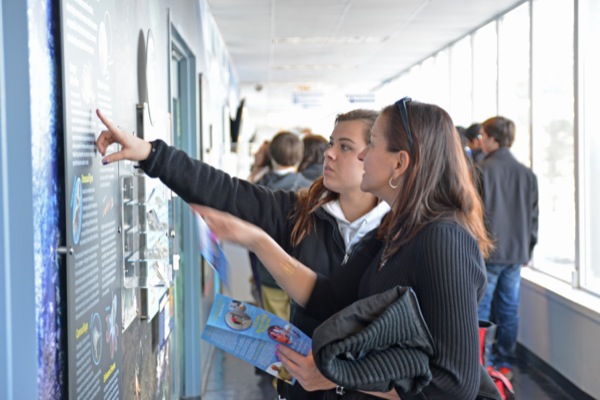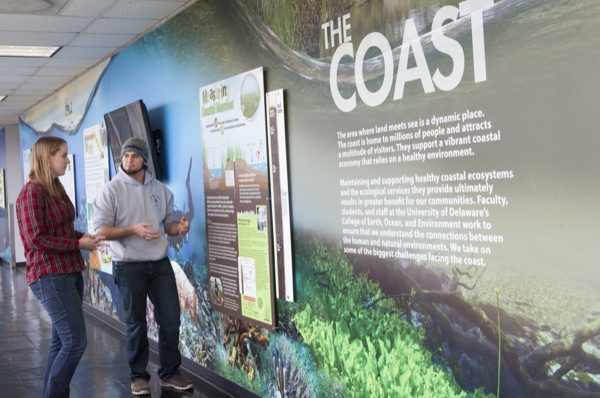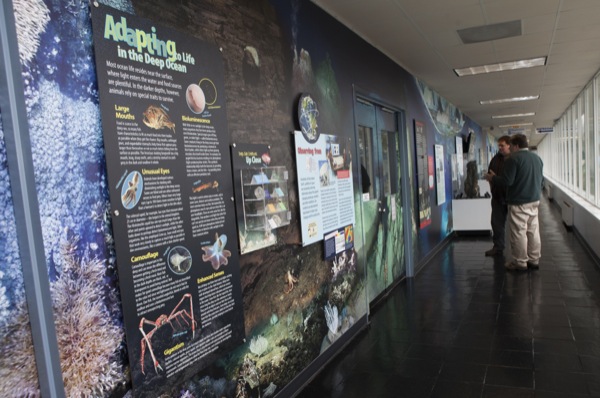


Science tours
Field trips to UD's marine laboratories bring ocean science to life
9:31 a.m., Feb. 18, 2014--From frigid waters in the Arctic to hydrothermal vents at the bottom of the sea, University of Delaware scientists travel the globe exploring the world’s oceans. Their home base at the Hugh R. Sharp Campus in Lewes is open to school tours this spring, offering middle and high school students a glimpse of marine biology and oceanography in action.
Free, guided tours lead groups through laboratory buildings where College of Earth, Ocean, and Environment and Delaware Sea Grant College Program scientists conduct experiments and research.
Campus Stories
From graduates, faculty
Doctoral hooding
Engaging exhibits explain their work on penguin populations, deep-sea adaptations, coastal marshes, renewable energy and other current projects. A newly installed, museum-quality mural depicting vivid underwater scenes transports visitors from the ocean depths to shallow waters to the coastline along the way.
Unusual fish and crustacean specimens pulled from the deep are on view for up-close looks, as well as two aquariums containing marine life found in Delaware Bay. School groups also learn how scientists are working to address local issues, such as the impacts of rising sea levels on Delaware water supplies.
When available, touring groups can stop by the Global Visualization Lab for a demonstration of how researchers use Google Earth, satellites, surface equipment and underwater robots to examine ocean environments. Nearby, students can observe the University’s 400-foot, 2-megawatt wind turbine, which powers campus buildings and assists studies in wind energy development.
The campus is also headquarters for UD’s marine operations, where several ships are docked while not out on the Atlantic for research cruises.
Guides understand teachers’ needs to align student field trips with grade-appropriate science standards and can customize tours accordingly. Visits can be supplemented with educational activities on wind energy, marine careers, the marine food web and other topics.
“Venturing out of the classroom and into a real scientific facility is an inspiring, eye-opening experience for many students,” said Nancy Targett, dean of the College of Earth, Ocean, and Environment. “We hope that opening our doors to budding scientists will help motivate the next generation to tackle future environmental challenges.”
The free tours may be scheduled for groups of five or more people, Monday through Friday, between 10 a.m. and 3 p.m. Requests should be made at least one week in advance by calling 302-645-4234, by emailing Lisa Dorey at dorey@udel.edu or by writing to the Delaware Sea Grant College Program, University of Delaware, CEOE, 700 Pilottown Road, Lewes, DE 19958-1298. The Hugh R. Sharp Campus is accessible to people with disabilities.
Article by Teresa Messmore
Photos by Lisa Tossey and Ambre Alexander Payne










